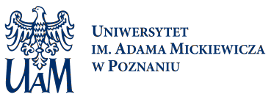prof. Janusz Czebreszuk, Faculty of Archaeology and Polish Archaeological Institute at Athens
His scientific interests are concentrated on 3rd and 2nd millennium BC in Europe. A great cultural change took place at that time, namely the end of the Neolithic and the beginning of the Bronze Age in the north part of the continent, and the birth of the Europe’s oldest civilizations in the Aegean.
Prof. Czebreszuk’s research experience developed in three main steps. First was Kujawy, the region in the Polish Lowland, where he has excavated more than 20 sites. His Ph.D. (1996) summarized those studies, which were focused on the social changes during the threshold of the Neolithic and the Bronze Age in this region. Later, he has extended his interests and studied the problems of the rise of the Bell Beakers and Unetice cultures in the Central European Lowland at the beginning of the Bronze Age (in result of this research his habilitation work was completed in 2001). At the same time, he began the research project focused on the fortified settlement in Bruszczewo, Unetice culture settlement from the Early Bronze Age, dated to the first centuries of the IInd millennium BC. He continues this project until now, together with Prof. Johannes Müller from the Christian-Albrecht University in Kiel (Germany).
The next step of his research was dedicated to the cultural relationships between Central Europe and the Aegean in the IInd millennium BC. Prof. Czebreszuk’s studies concentrate especially on the amber, which was not only a very important raw material from the north, but also as a cultural sign of the long lasting connection between Central Europe and the Aegean. The first summary of this research was included in his book entitled: “Bursztyn w kulturze mykeńskiej. Zarys problematyki badawczej” (Amber in Mycenaean culture. Outline of research problem), published in Poznań in 2011.
Since 2011 Prof. Czebreszuk serves as a co-director, together with Prof. Stelios Andreou (Aristotle University in Thessaloniki) and Dr Maria Pappa (Ephorate of Antiquities of Thessaloniki Region) and represents the Polish side in the Anthemous Valley Archaeological Project which takes place in Northern Greece (Central Macedonia). The research is concentrated on the settlement and landscape changes in the Anthemous Valley since the beginning of permanent prehistoric habitation there (VIth millennium BC), until the beginning of the Iron Age (beginning of the Ist millennium BC). The project is using multidisciplinary methods, mainly non-invasive techniques such as geophysics, corings and geoarchaeological surveys. Five research grants financed by the National Science Centre, Poland, were granted to Prof. Czebreszuk and his Ph.D. students in connection with the project. One of the effects of this collaboration is the monography entitled: “Anthemous Valley Archaeological Project. Preliminary report” which was published in 2016. In 2019-2021, Prof. Czebreszuk was in charge of the first Polish archaeological field project in Greece, carried out in the Anthemous Valley and focused on the geo-archaeological research.
Prof. Czebreszuk also takes part in the research on the Bronze Age in Carpathian Basin, especially in the Kakucs microregion in Central Hungary, where a Middle Bronze Age fortified settlement is being excavated, also with the use of a multidisciplinary methodology.
Understanding of the social meaning of the cultural changes is Prof. Czebreszuk’s main aim in all of the above mentioned projects. By conducting simultaneous research in Poland, Hungary and Northern Greece he forms the baseground for a future attempt to compare the social transformations in Europe in the beginning of the IInd millennium BC.
Moreover his research also concerns the emergence and development of the cultural landscape in various part of Europe during IIIrd and IInd millennium BC.
Prof. Czebreszuk participated in the implementation of 23 grant projects (mostly in international teams), obtained through competitions from Polish (especially the National Science Center and the Ministry of Higher Education and Science), as well as foreign sources. In the case of 12 of them, he was a project’s manager (PI) or he led a Polish group as part of an international team.
All of the mentioned activities and research topics are expressed in his publication list: around 200 articles in journals and monographs, 8 books, 18 edited books and also more than 70 small publications (reviews, introduction etc.).
Prof. Czebreszuk was invited to lecture at the following foreign universities: Aarhus, Athens (twice), Bamberg, Bochum, Brno, Heidelberg, Kiel, Oxford, Regensburg, Siena, Thessaloniki (twice), Zagreb.
He participated in more then 70 international symposia, most of which took place abroad (Belarus, Croatia, Czech Republic, Denmark, Germany, Great Britain, Greece, Hungary, Italy, Lithuania, Latvia, Netherlands, Portugal, Rumania, Serbia, Slovakia, Slovenia, Spain), at which at least 70 papers were delivered in the congress languages.
Prof. Czebreszuk is also an active academic teacher. He teaches about the Bronze Age in Europe, the importance of amber in the prehistory of our continent, the archaeology of the Aegean and the beginning of European culture. He has also promoted several dozens of M.A.’s and thirteen Ph.D.’s.
